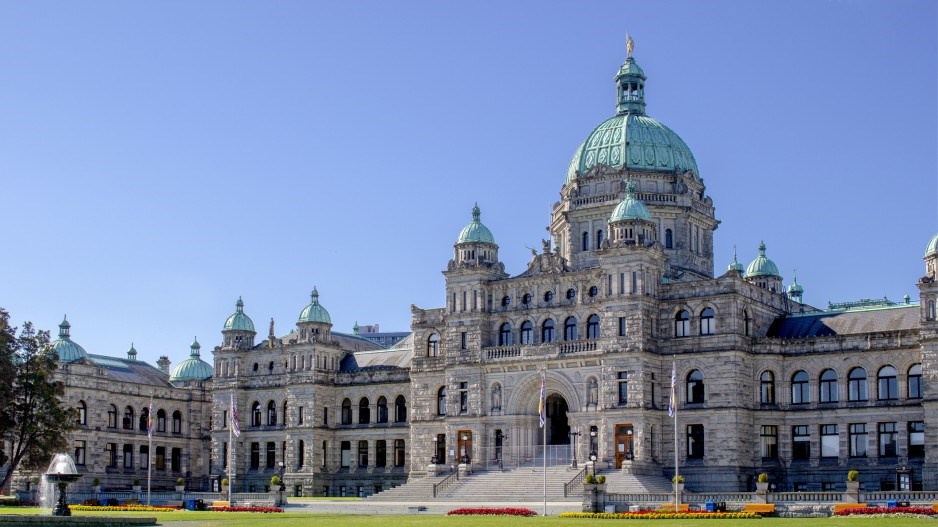One of the leading voices of the 2010 campaign against cigarette smoking at Vancouver parks and beaches does not expect many people will be caught breaking the province’s ban on illegal drug use in certain public places.
On Thursday, the NDP government tabled Bill 34, the Restricting Public Consumption of Illegal Substances Act, which is aimed at moving use of fentanyl, heroin, cocaine, methamphetamine and MDMA away from the public eye and into local overdose prevention sites. In January, B.C. decriminalized possession of 2.5 grams of hard drugs for personal use under a federally approved, three-year project.
The proposed law covers playgrounds, pools, parks, beaches, sports fields, bus stops and entrances to business and residential buildings. It would empower police to direct a person to stop the drug use, order the person to move elsewhere or arrest the person and seize the substance.
Jack Boomer, director of the Clean Air Coalition of B.C., said enforcement of the anti-smoking bylaw is passive and complaint-driven, which means signage will be key in helping slowly change behaviour under the new law.
“Will it make a difference over time?” Boomer said. “People become aware that this is just the thing that you don't do.”
Despite the proliferation of vaping and legal marijuana, not a single person was cited over at least four-and-a-half years for violating Vancouver’s Parks Smoking Regulation Bylaw. Freedom of information requests about enforcement between Jan. 1, 2019 to Aug. 2, 2023 came up empty.
“Park Board staff have confirmed there are no responsive records as no tickets were issued under the specified bylaw,” said the response.
The 2010 staff report said outdoor smoke could be just as harmful as indoor and the vast majority of park users polled were in favour of a no-smoking policy. The initial bylaw implementation focused on education and awareness.
“Staff further advised the board that many jurisdictions across North America have successfully implemented similar policies with high levels of compliance and the few cases of non-compliance that is anticipated can be addressed by park rangers and bylaw officers,” said the report.
Sarah Blyth, executive director of the Vancity Overdose Prevention Society (OPS), was vice-chair of the Park Board in April 2010 and part of the unanimous vote for the anti-smoking bylaw. She said her main concern at the time was garbage and the risk of wildfire.
The province declared a public health emergency in April 2016 due to the rise in fentanyl-related deaths. An October 2022 report from the B.C. Coroners Service said that between 2016 and 2021, smoking opioids became the leading mode of consumption province-wide, increasing from 29% to 56%. Meanwhile, injection fell from 39% to 20% during the first five years of the crisis.
“People will need a place to go, we need solutions, we need outdoors, the safe, clean outdoor spaces,” Blyth said. “We need to continue to connect people to resources. So if they're asked to leave a space, getting them to come to an office is important. But we don't have really enough outdoor spaces for people.”
After her 2008 election to Park Board, Blyth advocated for safe places to skateboard after numerous complaints about skateboarders on streets, sidewalks, plazas and outside businesses. The city now now has nine dedicated outdoor facilities. She said the same thinking is needed to accommodate drug users when Bill 34 is passed.
“You need to build something for people to go to that they can connect to recovery and resources,” Blyth said, adding that OPS sees up to 900 people a day.
At least 12,929 British Columbians have died from opioid use since April 2016, making it the leading cause of death for people aged 10 to 59. Almost two-thirds of those who have died in 2023 consumed drugs via smoking.
The City of Vancouver and Park Board communications departments said in a statement that they are “closely monitoring changes in provincial regulations and taking the time to consider next steps.”
As for the lack of tickets for smokers at parks and beaches, if education fails and escalation is needed, the city said Park Rangers may seek help from the Vancouver Police Department or Conservation Officer Service as needed.



